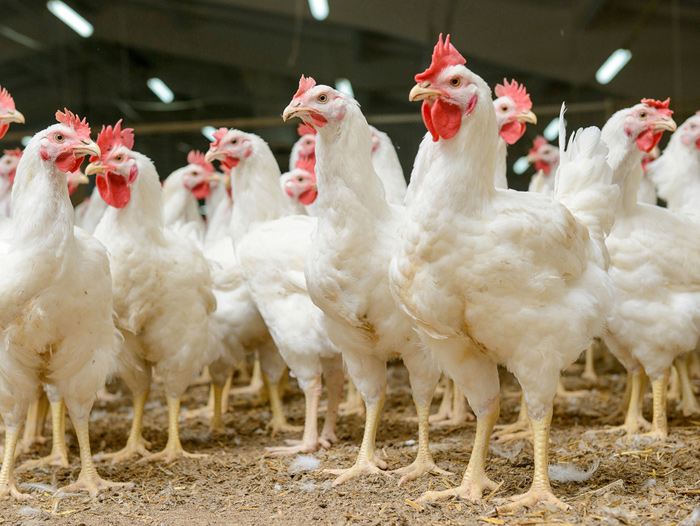US Poultry Sector Well Positioned to Withstand Profitability Pressure
June 25, 2019 | 4 min to read

DENVER — The U.S. chicken industry has experienced an unprecedented run of historic profitability since 2012 and responded by significantly increasing production and processing capacity. Six new poultry processing plants are expected to be operating by 2020, while production and supplies of competing animal proteins are also expanding.
According to a new report from CoBank’s Knowledge Exchange Division, profitability across the poultry sector is now under pressure as meat prices decline amidst growing supplies, recalling memories of the last major downturn a decade ago, which resulted in severe financial losses across the sector. Current projections for chicken production growth are 1.5%, which is well below the 2.5% average growth rate in the last five years.
Will Sawyer, lead economist for animal protein at CoBank, said that lessons learned from that market downturn have driven important changes, strengthened the industry and made it much more resilient to a potential market slide.
“When feed costs and a weak U.S. economy drove the sales of many chicken companies 10 years ago, the remaining companies and management teams knew the old way of operating couldn’t continue,” said Sawyer. “With the subsequent changes to pricing structures, capital structures and the overall approach to production and profitability, the outlook for the next downturn is much brighter.”
Many chicken companies found themselves with burdensome levels of debt that became unsustainable when corn prices more than doubled in 2008 and 2009. Today, the average chicken producer has almost as much cash on hand as debt on their balance sheet, making them far more resilient to any downturn in chicken prices and margins.
Industry pricing is likely the biggest structural shift in U.S. chicken production. It has allowed producers to more quickly pass on changes in feed costs, which allows them to more effectively manage the primary driver of earnings volatility. The expansion of cost plus and other pricing contracts that incorporate a component where chicken prices can quickly reflect changes in input costs has been significant.
The current range of prices for corn and soybean meal should continue through 2019. With good visibility for production costs, the outlook for chicken producer margins is better in 2019 compared to 2018. The domestic and international demand environment looks favorable for U.S. chicken producers.
A video synopsis and the full report, U.S. Poultry Outlook: This Time Things Are Different, are available on cobank.com.
About CoBank
CoBank is a $138 billion cooperative bank serving vital industries across rural America. The bank provides loans, leases, export financing and other financial services to agribusinesses and rural power, water and communications providers in all 50 states. The bank also provides wholesale loans and other financial services to affiliated Farm Credit associations serving more than 70,000 farmers, ranchers and other rural borrowers in 23 states around the country.
CoBank is a member of the Farm Credit System, a nationwide network of banks and retail lending associations chartered to support the borrowing needs of U.S. agriculture, rural infrastructure and rural communities. Headquartered outside Denver, Colorado, CoBank serves customers from regional banking centers across the U.S. and also maintains an international representative office in Singapore.
For more information about CoBank, visit the bank’s website at cobank.com.
Forward-Looking Statements
Certain of the statements contained in this news release that are not historical facts are forward-looking statements within the meaning of the Private Securities Litigation Reform Act of 1995. Our actual future business may differ materially and adversely from our expectations expressed in any forward-looking statements. Forward-looking statements are typically identified by words such as “believe,” “expect,” “anticipate,” “intend,” “estimate,” “plan,” “project,” “target,” “may,” “will,” “should,” “would,” “could,” or similar expressions. Although we believe that the information expressed or implied in such forward-looking statements is reasonable, we can give no assurance that such projections and expectations will be realized or the extent to which a particular plan, projection or expectation may be realized. These forward-looking statements are based on current knowledge and subject to risks and uncertainties. We encourage you to read our Annual Report and Quarterly Reports located on the bank’s website at www.cobank.com. We undertake no obligation to revise or publicly update our forward-looking statements for any reason.
